9 Smart Ways to Compare Translation Rates UK Per Word (And Get Real Value)
How much should you pay for translation services in the UK right now? Whether you’re a marketing manager eyeing global expansion, a solicitor handling cross-border paperwork, or a start-up going multilingual, knowing what’s fair can save you thousands—and maybe your reputation. But with “translation rates UK per word” ranging from rock-bottom to sky-high, it’s easy to get lost in the details or overpay without realising.
This listicle cuts through the confusion, defining what makes up per-word rates, what’s included (and what’s not), and why the answer is rarely as simple as a flat number. From insider price benchmarks to “hidden costs” that affect your bottom line, we’ve packed this guide with tips for marketers, legal professionals, academics, e-commerce teams and more.
Here are 9 essential strategies to compare and optimise translation rates UK per word—plus ways to boost your own traffic, earn backlinks, and spark social shares along the way.






Key Takeaways
Understand how UK translation rates per word vary by sector, project size, and language pair.
Learn to spot hidden fees, minimum charges, and the impact of urgent delivery requests.
Discover why “cheapest” isn’t always best—quality, certification, and project management matter.
Access practical visuals and expert data to make comparisons easy and shareable.
Gain actionable tips for smarter budgeting, avoiding common pitfalls, and negotiating the best value.
Ideal for UK marketing managers, legal professionals, e-commerce leaders, and anyone buying translation services.
1. Know the UK Benchmark Rates for Your Sector
Most UK translation rates per word range from £0.08–£0.18, but your industry may pay more.
A 2024 survey by the Association of Translation Companies (ATC) found average rates for marketing and legal sectors were £0.13–£0.16 per word, while technical and life sciences projects could reach £0.20 or more. E-commerce and travel/tourism often sit at the lower end, around £0.09–£0.12, thanks to higher volumes but lower specialisation.
Why it matters:
Knowing your sector’s benchmark lets you spot “too cheap to be true” quotes—often a red flag for poor quality or machine translation without review.
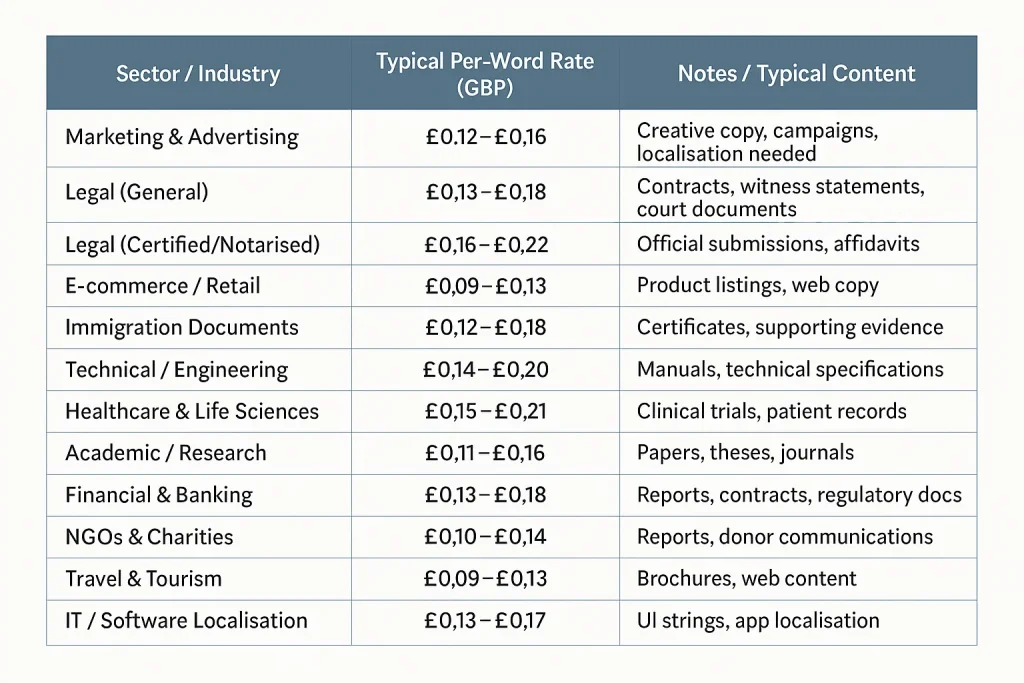
2. Break Down What’s Included in the Rate
A low per-word rate may exclude revision, formatting, or project management—so check the details.
Some agencies headline a cheap “per-word” figure, but you’ll pay extra for revisions, glossary management, or DTP. For example, a legal translation quoted at £0.09/word may rise to £0.15/word with revision and certification added. According to Slator, project management and QA can add up to 30% to the final bill.
How to use it:
Ask for a detailed breakdown up front, and compare apples with apples.
TIP: “The cheapest translation is usually not the best value.”
3. Beware of Minimum Charges and Small Print
Most UK agencies have a minimum fee (£30–£60), so tiny jobs aren’t priced “per word.”
This catches out many marketers and legal teams needing a certified translation for a single page or certificate. If your 150-word text attracts a £40 minimum, that’s an effective rate of £0.27 per word!
Why it matters:
Plan to batch small jobs where possible, or check if your provider offers bundle deals for frequent requests.
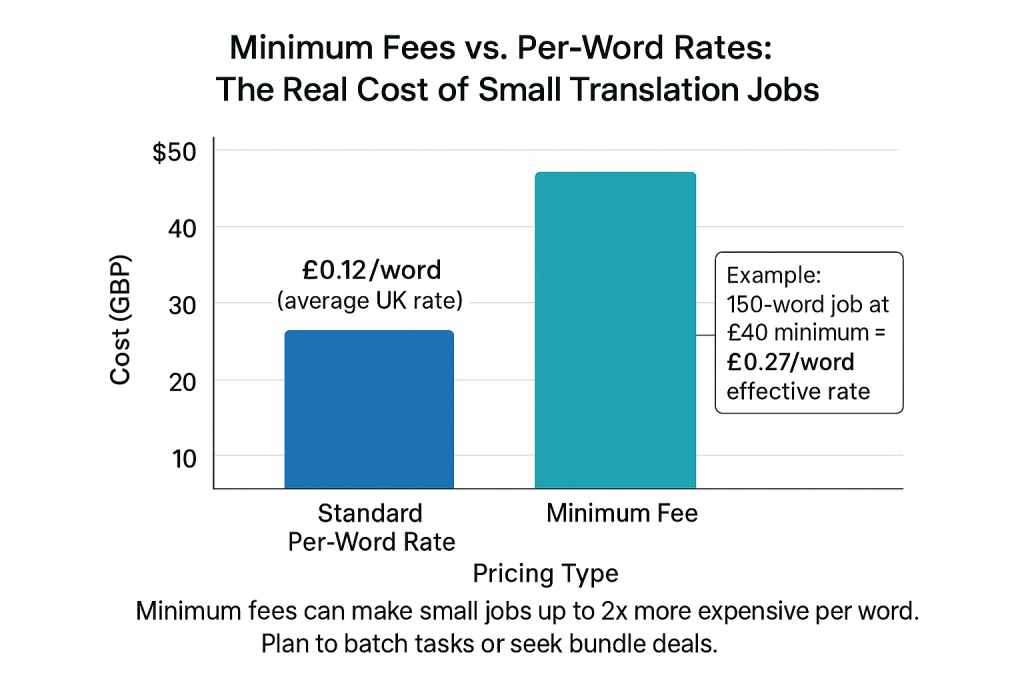
4. Factor in Language Pair and Complexity
The rarer or more complex the language, the higher the per-word rate.
Translating from English into Western European languages like Spanish or French is often at the lower end of the scale (£0.10/word). By contrast, Japanese, Korean, or Nordic languages frequently command £0.18–£0.22 per word—or more for legal or medical texts. ATC stats confirm rare languages can cost up to 50% extra.
How to use it:
Know your source and target languages’ “tier”—and budget accordingly.
“Complex languages and regulated content always cost more.” – London LSP Director
5. Understand Volume Discounts—But Watch for Quality Drops
Big projects (10,000+ words) may earn discounts, but beware the race to the bottom.
Providers often quote 10–20% lower per-word rates for high-volume jobs. However, too much discounting can mean lower-paid translators, rushed delivery, or poor QA. In regulated sectors, cutting corners could be disastrous.
Why it matters:
Always balance cost savings with your required quality—ask about the provider’s recruitment and review process.
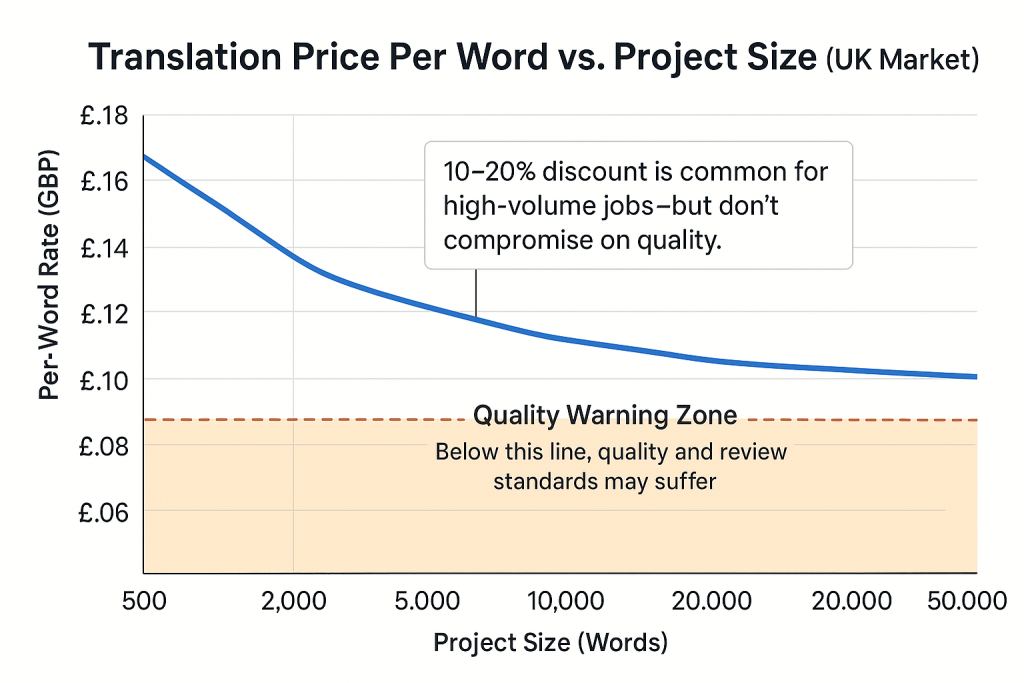
6. Assess Translator Experience and Credentials
Rates for certified or expert translators are higher—for good reason.
A solicitor’s translation handled by a legal expert with 10+ years’ experience can be double the rate of a generalist. Chartered Institute of Linguists (CIOL) certified translators charge more, but your translated contract will stand up in court.
Practical example:
A technical engineering translation may cost £0.22 per word with a certified translator, versus £0.12 for a “general” freelancer.
7. Compare Freelancers vs. Agencies for Translation Rates UK Per Word
Freelancers are usually 15–30% cheaper, but agencies provide project management and QA.
Freelance translators often charge £0.08–£0.14 per word, while agencies quote £0.12–£0.18. Agencies justify the premium by including review, terminology checks, and full project oversight.
Why it matters:
Small businesses may prefer freelancers for price; larger or regulated projects often need agency-level support.
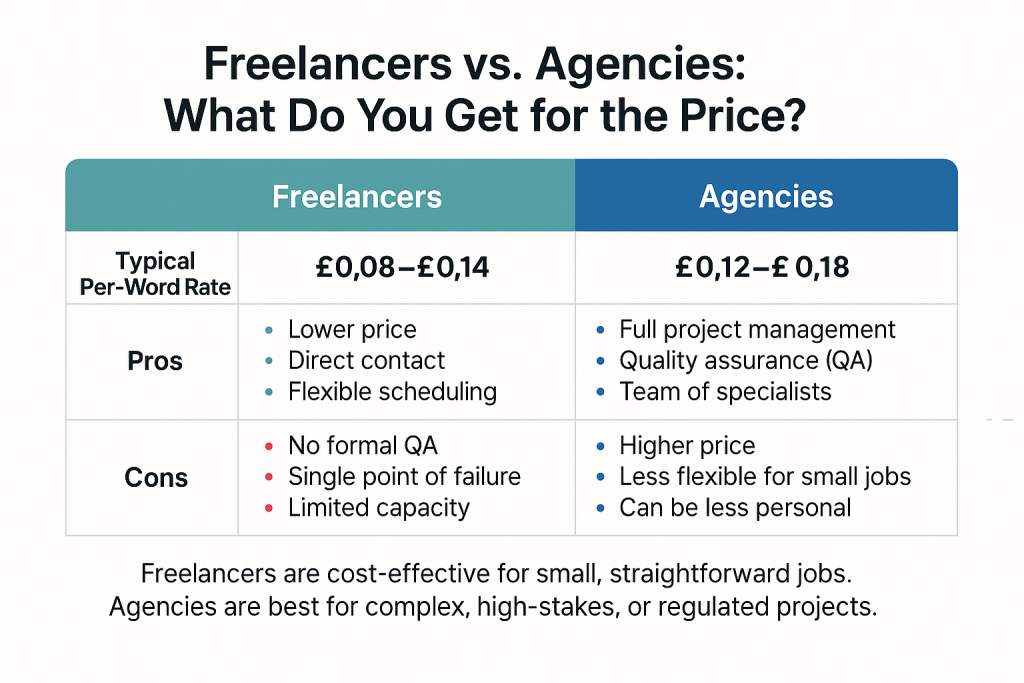
8. Consider Technology—Machine vs. Human Translation
Machine translation can slash rates, but “raw” output needs review for business use.
MT post-editing rates are typically £0.04–£0.08 per word—cheaper, but risky for legal, medical, or marketing content. Human QA is essential for accuracy and tone, especially if you’re targeting regulated markets or customer-facing materials.
Example:
A marketing campaign translated by Google Translate may save money, but damages brand reputation if context is lost.
“AI translation is useful for speed, not for quality.”
9. Don’t Forget Turnaround Time and Rush Fees
Urgent jobs (24–48 hours) often incur a 30–50% premium.
Legal professionals, solicitors, and e-commerce firms should expect higher costs for next-day or weekend delivery. Standard turnaround is 1,500–2,500 words per day; faster than this costs more.
Why it matters:
Plan ahead to avoid paying over the odds for tight deadlines.
Conclusion
You now have 9 actionable strategies to confidently compare and negotiate translation rates UK per word—no matter your sector or project. Ready to save money and boost your results? Download our detailed translation buyer’s checklist, or share this guide with your team for smarter spend on language services.
Ready To Get Started?
Fill out our form, and we’ll promptly follow up with a detailed overview of your project.
Positive Reviews From Customers
Professional and accurate translations. Highly recommended for UK ENIC applications!

The translation service was efficient, and my Statement of Comparability was processed without delays!

Great support throughout the process. Quick and reliable service.


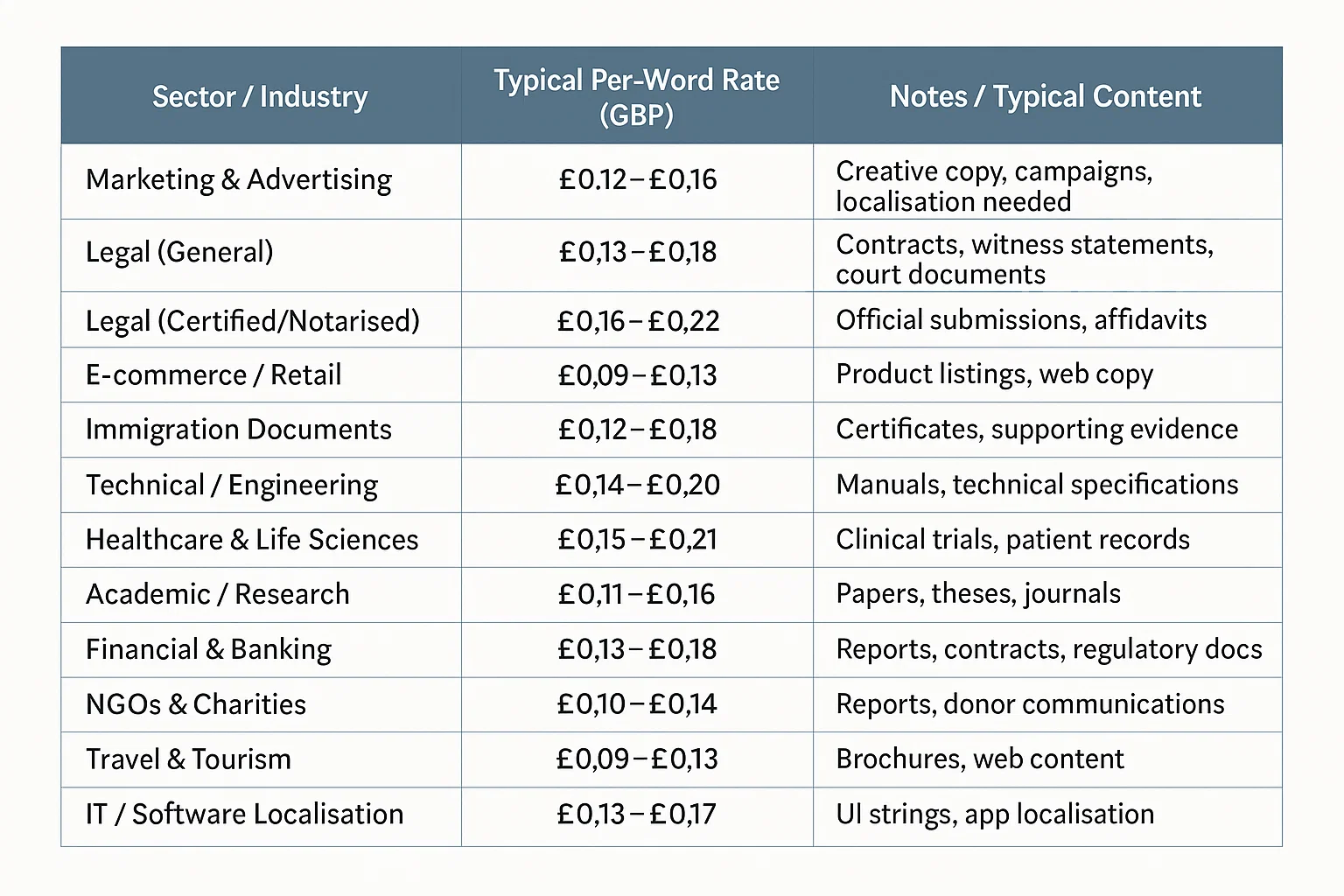
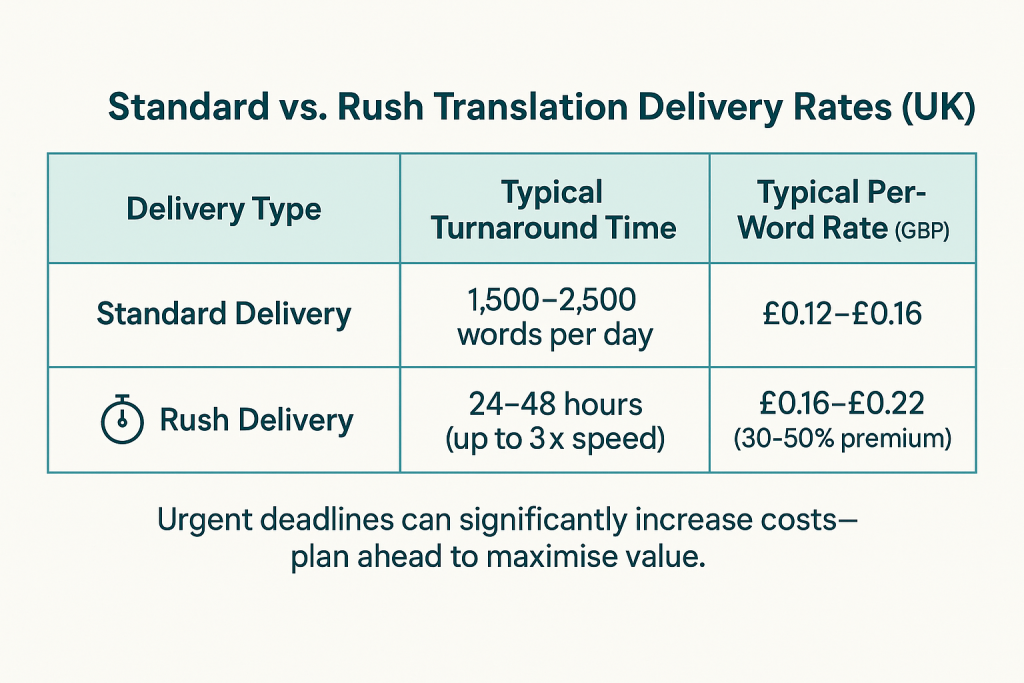




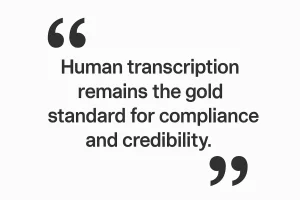
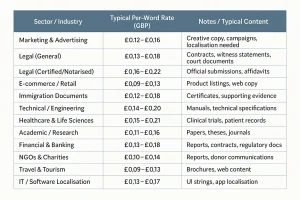

Anne K.